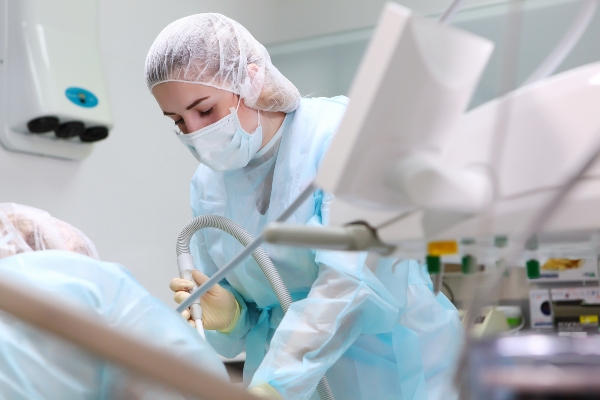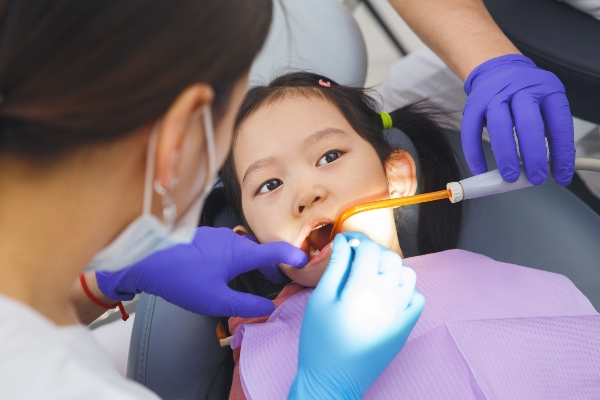How Root Canals Are Done in Pediatric Dentistry

Your child may need a pediatric dentistry appointment to have a root canal procedure done. This may need to be done to remove the pulp from the child’s tooth that is diseased. This is important for saving the tooth. Read on to learn more about how the root canal is done.
When to get a root canal
If the root of the tooth is infected or damaged, then the child might need to have a root canal treatment. An injury, accident or abscess are all reasons for this type of treatment. A child can have a root canal on either a permanent tooth or a baby tooth. The baby teeth are meant to fall out.
However, the teeth need to stay in long enough. If the baby tooth comes out too soon, then the child may have speech or bite problems. When a child has a root canal treatment, the baby tooth can be saved. This allows it to come out only when it is ready.
Preparing a child for a root canal
In pediatric dentistry, the dentist will tell the parent how to prepare the child for the root canal. The parent can talk to the child about what the procedure is and why the child needs it. The child might feel scared about the procedure. The parent can help the child understand what will go on during the procedure. Telling the child that there will be medicine to prevent pain can be helpful.
Depending on the age of the child, the dentist may give the child X-rays. This will help the dentist to examine the area. This can show the dentist how bad the infection is. It will also help the dentist see the shape and size of the root canal.
The child will receive local anesthesia. This can help to prevent pain while the root canal is being done. The child might also receive antibiotics to help prevent any infections after. The parent should talk to the dentist about whether or not the child is allergic to it. Both antibiotics and anesthesia are possible to be allergic to.
How a root canal is done
If the child has a filling on the tooth, then the dentist will remove it. Then there will be a rubber sheet placed around the child’s tooth. This will help to keep saliva out of the root canal. This is important because saliva can contain harmful bacteria.
The sheet around the tooth will also help keep the child from swallowing pieces of tooth or liquid. The dentist may need to drill into the crown to get to the root canal and pulp. The pulp will be removed and replaced.
Choose pediatric dentistry today
A root canal can save your child’s teeth. This helps the permanent teeth develop and come in properly. It also helps with your child’s speech development. If you think your child may need a root canal, make an appointment with your dentist today.
Request an appointment here: https://www.hvkidsmiles.com or call Hudson Valley Pediatric Dentistry at (845) 363-4177 for an appointment in our Middletown office.
Check out what others are saying about our services on Yelp: Read our Yelp reviews.
Recent Posts
A pediatric root canal is a restorative procedure that can preserve the overall health of a child’s smile. This applies even if the affected tooth is a primary tooth. After the procedure, a pediatric dentist will likely place a dental crown on top of the treated tooth. Crowns not only protect the treated tooth but…
Getting ready for a pediatric root canal is crucial if your child is to have a pleasant treatment experience. A damaged pulp causes serious pain. Even if extraction is an option, keeping the baby tooth intact is always a priority. Knowing what this procedure has in store can prepare your child well for it. Here…
Your child may need a pediatric root canal for an infected baby tooth. Research shows that many parents think that this is not necessary since the baby tooth will fall out anyway. But baby teeth play a vital role in your child’s dental development and health. Knowing the signs your child may go through a…
Your child’s pediatric root canal will be a delicate and painless procedure. The aim is to preserve the dental structure and prevent extraction. Preparing for this treatment is crucial. Here are five FAQs to consider during your child’s pediatric root canal consultation day.The dentist will numb the injection site with a gel or cream first.…


